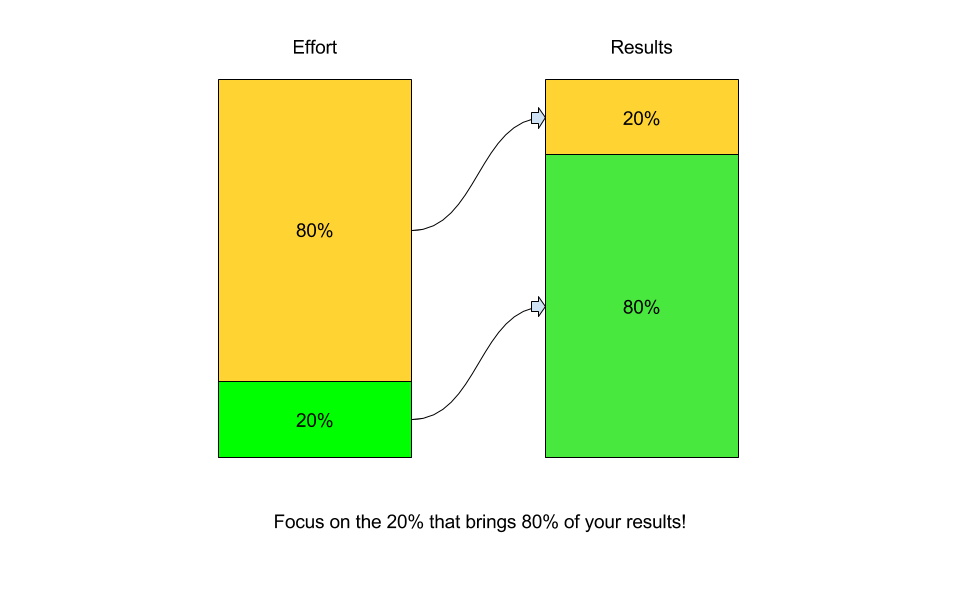Don’t Forget the 80/20 Rule!

[dropcap]Small [/dropcap]business owners often waste their time on “$10 per hour work”, such as supply runs to the store and office administration tasks – tasks that are easily delegated to employees. Meanwhile, some owners will often forgo the activities that can earn $1,000 per hour. High value tasks include marketing (email and phone), customer relationship building, and new contract negotiation. These tasks truly benefit from the owner’s expertise and often result in long term revenue growth for the company.
[blockquote]The Pareto Principle, or “80/20 Rule”, as it is frequently called today, is an important principle to remember when growing your business.[/blockquote]The Pareto Principle, or “80/20 Rule”, as it is frequently called today, is an important principle to remember when growing your business. Apply this principle by determining which “20% of your activities” produce “80% of your business income”. Once this is determined, focus on those activities, and delegate (or eliminate) the activities that produce little or no income. The principle also applies to identifying the characteristics of your high value customers. It is likely that the majority of your revenue (maybe 80%) is generated by a smaller portion of your customers (perhaps 20%). If this is the case, identify the characteristics of those high value customers, and focus your marketing efforts around those characteristics.
In home health this is very true, many owners spend 80% of their time on paperwork: completing paperwork, looking for paperwork, verifying paperwork and instructing staff regarding paperwork. These tasks, although important to the business, do NOT increase the revenue of the business and should be delegated to trusted staff. In these cases, the owners are spending 80% of their time on tasks that produce 20% (or less) of the business revenue. Instead, the owners should spend their time on:
- Developing print (mail and newspaper), television and radio ads. In general, home health businesses can minimize social media and Internet ads, as most of the core customers (seniors) do not utilize social media and other “new media”. Utilizing all media forms for marketing material is a solid approach when advertising to seniors, but the majority should be in traditional media.
- Look at opening contracts with other programs. For example, Community Wide Home Health of Houston, earned a contract with Adult Protective Services (APS). After providing services for APS, many of the clients were able to transfer into the PAS program! Earning revenue while providing APS services easily translated into additional revenue for their PAS services.
- Sponsor a local health or activity fair targeted toward seniors. If you do not have the budget or resources to plan a full event, consider partnering with a senior center, nursing home or assisted living facility to provide free products or cover some of their costs to put on such an event.
- Set yourself apart from other agencies when marketing to physician clinics. Build relationships with the staff! If other agencies provide pens and pads (boring), find out what the staff would really enjoy. Perhaps bring lunch, at which you can explain your agency’s advantages to the staff. There is no more valuable asset than your customer relationships and the relationships you cultivate with your referring clinics.
